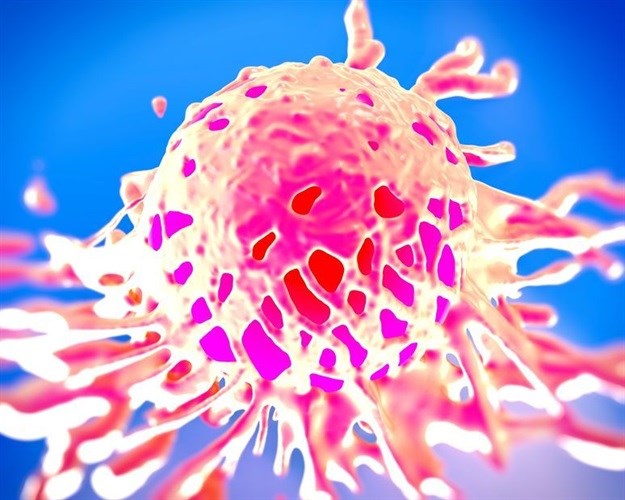A new study by the Yale School of Public Health and partner institutions is the first to examine the potential cancer prevention benefits of prolonged periods of HIV viral suppression, resulting from antiretroviral therapy, for persons living with HIV.
The researchers compared cancer rates for 42,441 HIV-positive veterans with those of 104,712 demographically matched uninfected veterans from 1999-2015 to determine whether long-term viral suppression (defined as two years or more) was associated with decreased cancer risk.
For all cancers combined, the researchers found that cancer risk was highest in the unsuppressed state, lower in early suppression, lower still in long-term suppression, and lowest in uninfected patients. However, patients with long-term viral suppression still had a higher cancer risk than uninfected persons. As expected, the cancer prevention benefit was strongest for AIDS-defining cancers (ADC), including non-Hodgkin lymphoma and Kaposi sarcoma, with a much weaker benefit for non-ADC caused by oncogenic viruses. Although no overall benefit was seen for non-ADC not caused by viruses, a benefit was observed for four specific cancer types in this category: cancers of the lung and larynx, melanoma and leukemia. The findings are published in the journal Annals of Internal Medicine.
“The good news is that long-term viral suppression was associated with reduced cancer risk. The bad news is that risk remained elevated over that of uninfected persons and that the cancer prevention effect was relatively weak for non-ADC, showing that antiretroviral therapy alone, although vital, is insufficient for cancer prevention among persons living with HIV. We need a multifaceted approach, including prevention of infection with oncogenic viruses such as human papilloma virus and evidence-based screening for cancers such as anal cancer,”
- Yale School of Public Health Professor Robert Dubrow, MD, the study’s senior author.
Previous randomised clinical trials and observational studies have examined viral suppression and cancer risk, but they were mostly limited to small numbers of cancer outcomes or were only focused on few specific cancer types.
The findings are helpful to both infectious disease and general medicine clinicians who care for the population of aging HIV-positive patients, said lead author Lesley Park, MPH (2010), PhD (2015), an instructor at the Stanford University School of Medicine and associate director at the Stanford Center for Population Health Sciences. Park initiated the research as a YSPH doctoral student.
“As this population is aging, the overall burden of cancer is substantial and increasing; however, we have much to learn about the potential cancer prevention benefits of antiretroviral treatment. These findings establish the scientific evidence to warrant further exploration of the effects of long term viral suppression in future work that explores lower thresholds for defining viral suppression or varying duration of suppression,” said Park.
Scientists increasingly recognise that many cancers are driven by viruses. Understanding how HIV interacts with viral coinfections and results in higher risks of cancer may offer critical insight in how we might better prevent and treat these cancers for everyone, the researchers said.
The research was supported by the US Veterans Health Administration and by grants from the National Institute on Alcohol Abuse and Alcoholism, the National Institute of Mental Health, the National Institute of Allergy and Infectious Diseases, the National Cancer Institute, the National Institute of Diabetes and Digestive and Kidney Diseases and the National Institutes of Health.
This article was originally published by Yale University.



























